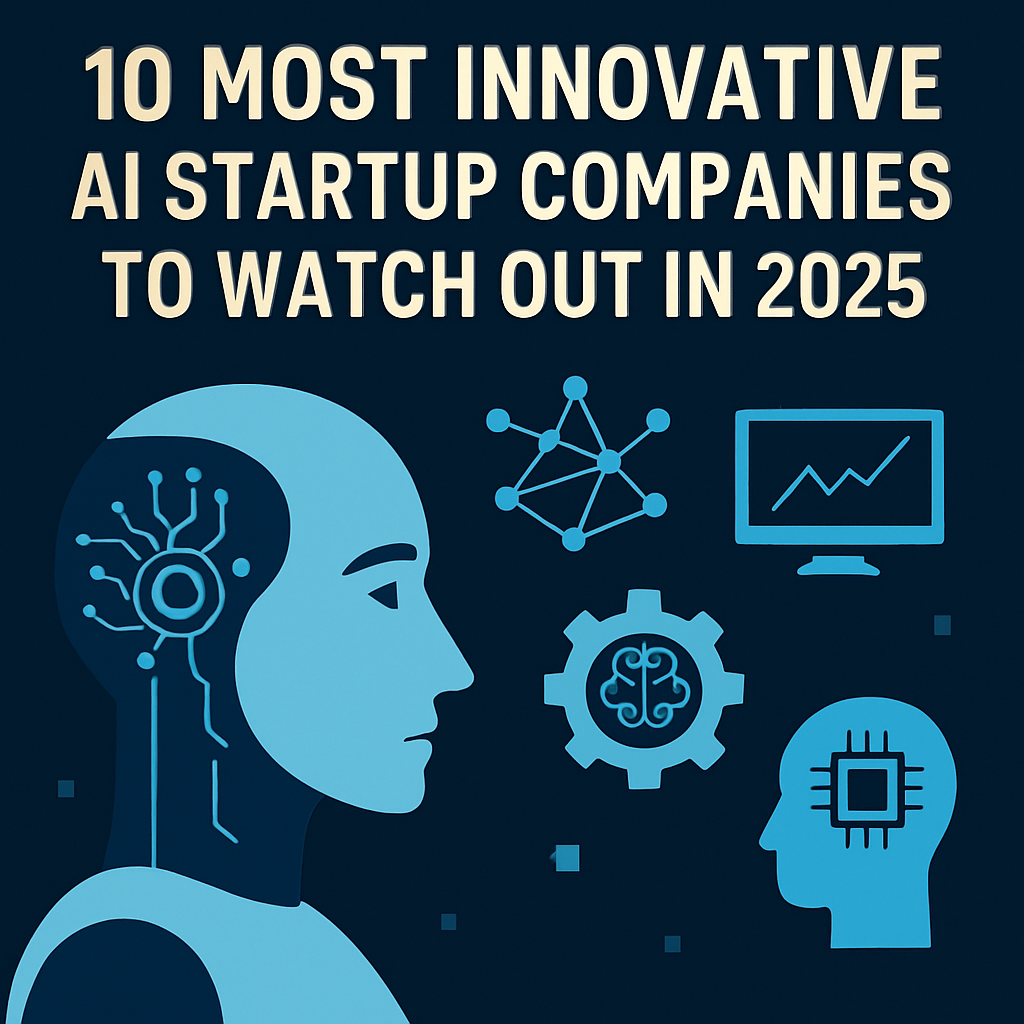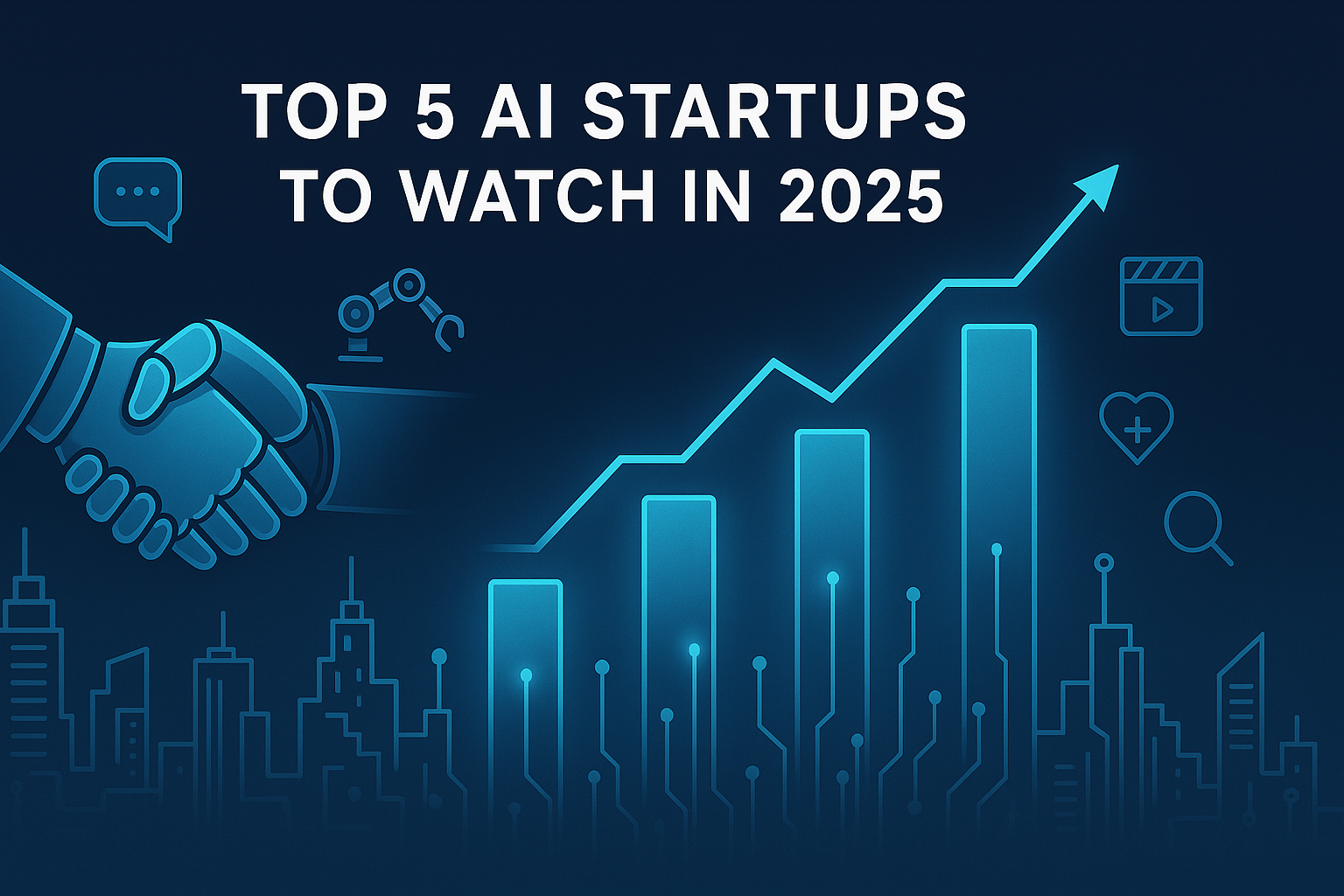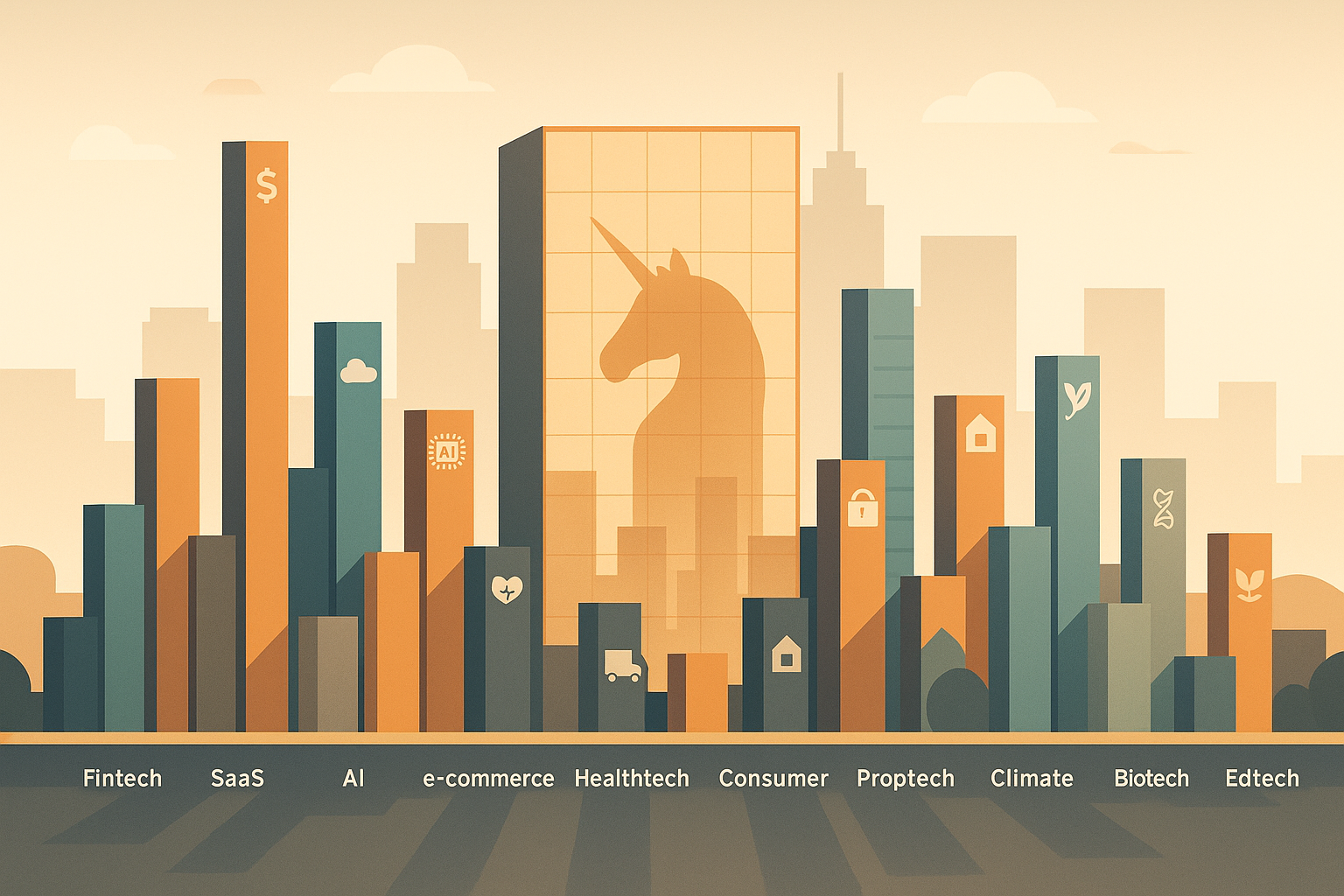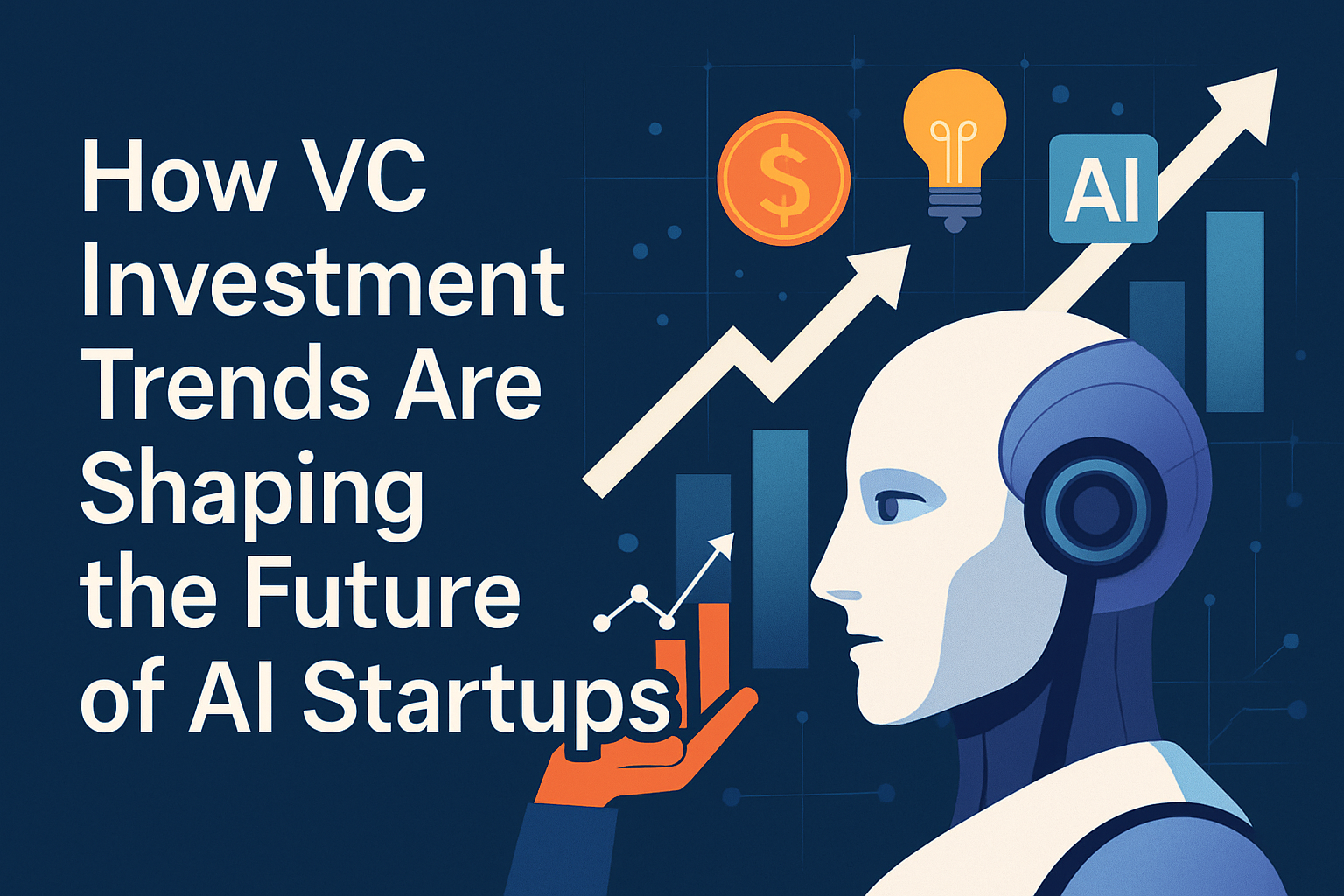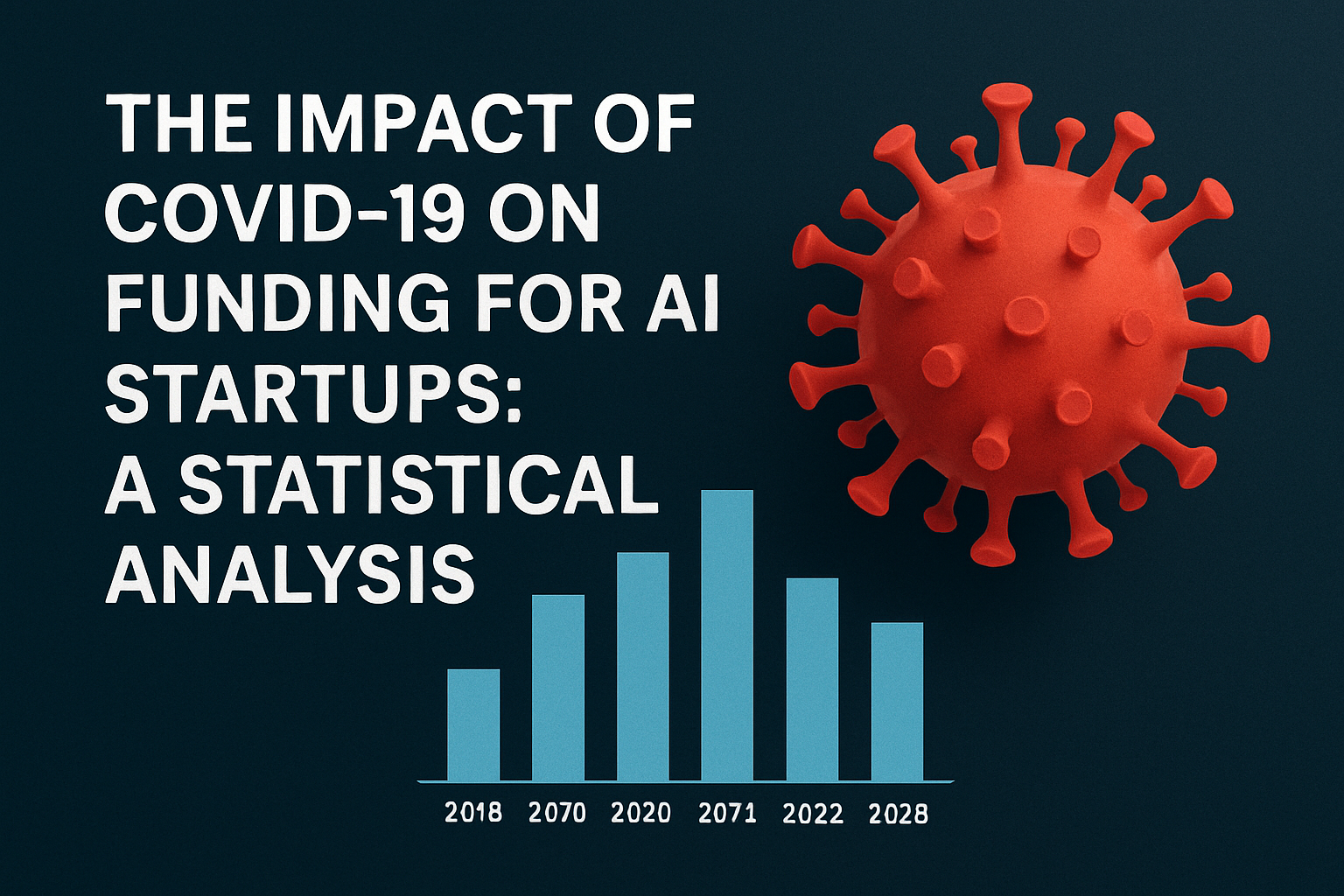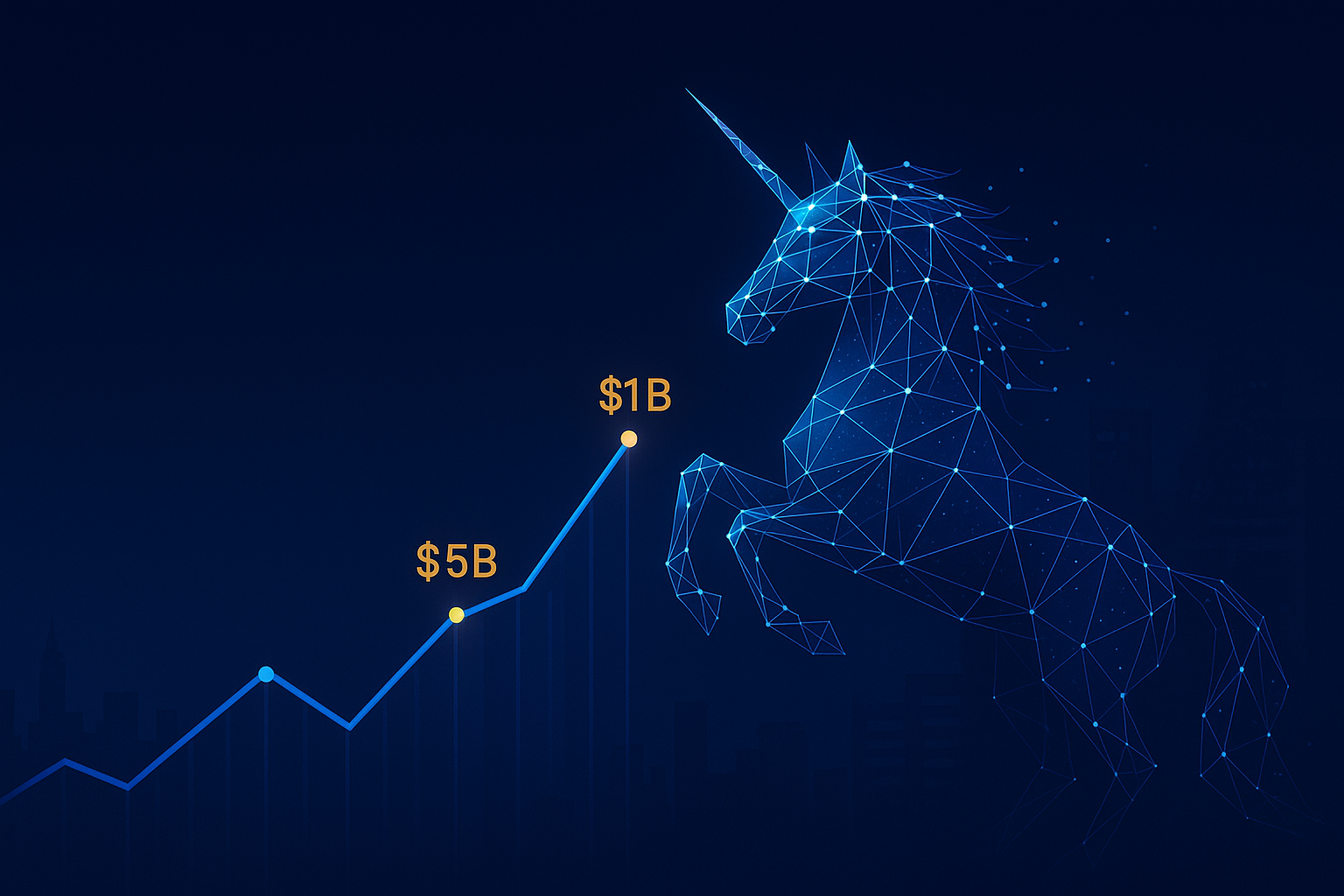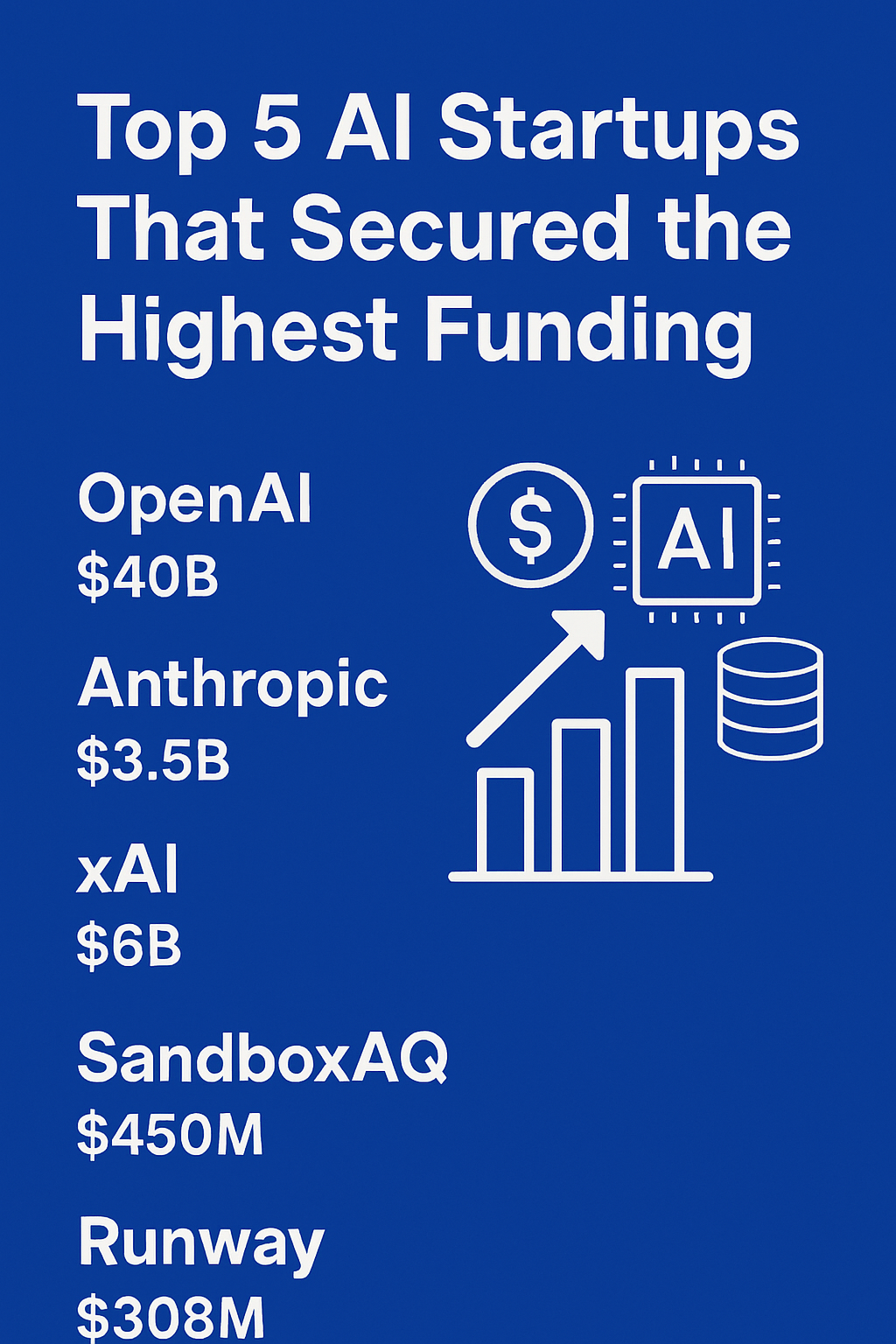AI has reached a new level of growth and business. Before, only huge tech companies with a lot of money and research facilities could make big advances in AI. Now, fast-growing companies are pushing the frontiers in many fields, such as generative models and autonomous agents. They are also coming up with solutions that work for healthcare, finance, and manufacturing. StartupBlink’s 2025 study says that AI startups now account for more than 6.2% of all new enterprises in the world. Two years ago, this was 4.5%. This highlights how vital AI is for coming up with new ideas. Gartner says that by 2025, the world will have spent $644 billion on generative AI. This is a massive 75% rise from last year, mainly to improvements in large language models (LLMs) and agentic AI systems.
The figures alone don’t tell you how much money companies are making or how much they’re worth. It’s also about quality, since new businesses use AI programs that are built for their area to solve problems in the real world. People are putting money into businesses that can show they have both technological expertise and concrete methods to earn money, like speeding up consumer engagement or automating the search for new treatments. We choose 10 of the newest AI businesses to keep an eye on in 2025. They have a lot of customers, their technology is cutting-edge, and they might revolutionize whole sectors.
1. Anthropic Overview: Dario Amodei and Daniela Amodei, who used to work for OpenAI, launched Anthropic in 2021. The company is making huge language models that are simple to use and safe. Its main model, Claude, is a direct competitor to GPT-4, although it is said to be easier to use and less likely to generate bad results.
Important New Ideas:
- Constitutional AI is a collection of rules that enables models look at what they’ve already done and improve it.
- Steerability: Users may give the model basic commands to change how it functions in a lot of different ways.
Money and traction:
- The Series C round brought in a total of $1.9 billion.
- Amazon, Lightspeed Venture Partners, and Spark Capital are among of the companies that have invested in it.
Why You Should Watch: Anthropic has struck a balance between safety and skill. It focuses on models that are powerful and know how to work together. This solves two of the greatest problems in the field: performance and responsible use.
2. Fireflies.ai
Fireflies.ai automatically captures, summarizes, and analyzes talks on platforms like Zoom, Google Meet, and Microsoft Teams to make meetings relevant. Fred, the AI helper, makes sure that everyone on the team knows what duties and decisions are vital.
Important New Ideas:
- Working with a lot of various sources: It works with over 100 tools for working jointly without any hassles.
- When you use AI to summarize a meeting, you don’t just write down what everyone said; you put together the most significant portions.
Money and traction:
- Total funding: $19 million (Series A)
- Some of the investors are Canaan Partners, Khosla Ventures, and F7 Ventures.
Why you should watch it: Fireflies.ai deals with a problem that comes up a lot when people work from home: too many meetings. It changes talks into information. It has swiftly garnered customers and has a clear plan for how to work with other systems, which is why it is the default meeting intelligence layer for enterprises.
3. Roboflow
Roboflow is a complete computer vision platform that lets you work with datasets, train models, and use them. Roboflow makes it easy for teams to build vision apps without having to know a lot about AI.
Important New Ideas:
- Dataset Augmentation: Creating a lot of diverse training samples by itself.
- One-Click Deployment: Models that perform well on mobile, web, and edge devices.
Money and traction:
- The total amount of money raised was $32 million (Series B).
- Coatue Management, CRV, and Sequoia Capital are some of the investors.
Why You Should Watch: Roboflow is working to make computer vision easier to use, which might open up new possibilities in retail, farming, and manufacturing as more and more devices, like smartphones and security cameras, collect visual data. This will make it easier to employ AI in fields that aren’t very modern.
4. DevRev Overview: DevRev employs AI to make it easier to manage goods, serve customers, and do technical tasks. It uses AI to look at new tickets, suggest code modifications, and automatically put down requests for new functionality. This makes it hard to distinguish the difference between a customer and a developer.
Important New Ideas:
- The AI Triage Engine ranks problems based on how important and urgent they are.
- Smart Documentation: Makes complete API docs from code in real time.
Money and Progress:
- Funding amount: $40 million (Series A)
- Y Combinator, Rocketship.vc, and Mistletoe are among of the investors.
DevRev argues that employing AI in the software development lifecycle will help engineers get more done and finish the feedback loop. This might have a huge influence on businesses that develop through SaaS and product-led growth.
5. People.ai
People.ai uses AI to look at CRM, email, and calendar data and turn metadata that is generally overlooked into sales insights. Its software maintains track of how deals are doing, manages revenue operations, and finds methods to get individuals interested.
Important New Ideas:
- Activity Intelligence: This tool shows you how successfully your salespeople are executing their tasks and provides ways to generate the most money.
- Pipeline Health tries to figure out when transactions will fall through by looking at how individuals talk to each other.
Funding and traction:
- Series D raised a total of $197 million.
- Some of the investors are Sapphire Ventures, Sandhill Angels, and Lightspeed Venture Partners.
Why You Should Watch: People.ai’s unified approach to revenue operations, which is based on thorough data analysis, has made it popular with huge firms like Zoom and Adobe in a market full of point solutions.
6. Nektar.ai
Nektar.ai makes it easier for organizations to sell by putting sales conversations in real time and providing crucial information like budget negotiations, mentions of competitors, and next steps right in CRM dashboards.
New Things:
- Real-Time Call Insights: Shows individualized coaching advice and the ratio of listening to talking.
- CRM Plugin: enables AI add tasks and summaries to Salesforce and HubSpot.
Getting traction and money:
- The total amount of money raised was $25 million (Series B).
- Gradient Ventures and Bain Capital Ventures are both investors.
Why to Watch: Nektar.ai’s AI-powered coaching and deal intelligence can help salespeople complete deals faster and win more often as more individuals sell from home.
7. Jasper’s AI
Jasper AI is a platform for generative AI that aids marketing teams. It was once known as Jarvis. It writes advertising, blog pieces, and social media posts based on what people instruct it to do. This makes it faster to make content.
Important New Ideas:
- You can choose the tone, keywords, and briefs to generate material that is just right for you.
- Teamwork: The program provides features for checking and keeping track of different versions of marketing workflows.
Cash and traction:
- The Series B round raised $125 million in total.
- Two of the investors are Bullpen Capital and Insight Partners.
Why you should watch: Jasper’s AI helper can make the publication process up to 60% faster. This gives campaigns more freedom and helps you talk to a lot of individuals in a more personal way.
8. Synthesia
Here’s a quick look at Synthesia: Companies can utilize Synthesia to produce AI-powered videos from textual screenplays. It uses phony avatars and actual speech in virtual lectures and presentations instead of pricey production.
Important New Ideas:
- Digital avatars can be taught how to act like their bosses by businesses.
- Multilingual Dubbing: It can voice over in over 60 different languages.
Getting traction and money:
- The Series B financing brought in a total of $66 million.
- Some of the investors are FirstMark Capital, GV, and Index Ventures.
Why You Should Watch: Synthesia’s virtual video production can save businesses of all sizes up to 90% on videos for training, marketing, and teaching customers, making them available to everyone.
9. Morphos AI
Morphos AI Overview: You don’t need to know how to code to develop and run LLM-powered agents with Morphos AI. These agents can do things like manage workflows and help customers.
Important New Ideas:
- Agent-Marketplace: Ready-to-use templates for common business circumstances.
- Low-Code Workflow Builder: Link agent activities together with a simple drag-and-drop interface.
Money and traction:
- Amount of funding: $50 million (Series A)
- Founders Fund, a16z, and Lux Capital are some of the investors.
Why You Should Watch: Morphos AI’s no-code agent platform makes it easy for anyone to use AI to do things automatically. This will speed up digital transformation projects.
10. A Brief Look into AI Squared AI Squared’s hybrid SaaS and on-premises platform makes it easier to add AI models to business solutions. You don’t have to perform a lot of DevOps labor to develop prototypes and add AI functionality quickly.
Important New Ideas:
- Model orchestration: This functionality handles a number of AI models, both open source and proprietary, to get the greatest pricing and performance.
- Data Privacy Controls: To follow the GDPR and CCPA, you need to store data in different places.
Money and traction:
- The total amount of money raised is $45 million (Series A).
- Two of the investors are Menlo Ventures and Insight Partners.
Why to Watch: AI Squared helps you avoid becoming stuck with a vendor, which is a key concern for CIOs and CTOs, and also speeds up the launch of AI projects.
To make it short
In 2025, there will be a number of new AI companies. It features both basic model developers like Anthropic and startups that are doing something that no one else is doing, like Fireflies.ai and Synthesia. These 10 startups show how cutting-edge AI can help organizations get tangible outcomes, like generating movies and other material in new ways, enhancing sales efficiency and customer engagement, and transforming how videos are generated. People who wish to buy firms and investors should pay attention to these new companies since their fresh ideas will probably transform how AI is used in a lot of different industries in the future.
Questions That Are Often Asked
Q1. How did they choose these new companies?
We picked businesses who had a lot of customers, generated a lot of money, and knew how they were going to market their products. We read a lot of information from the industry and statements from investors to make sure they were correct.
Q2. What does it mean for an AI startup to be “new”?
We saw of innovation as novel technical ideas (like agent marketplaces and Constitutional AI), observable impacts (like lower costs and faster time to market), and the ability to grow in diverse areas.
Q3. Are these new businesses producing money?
Most AI firms are still growing, which means they are spending a lot of money on research and development and finding new customers. Some approaches of running a business take longer to earn money than others. For instance, Fireflies.ai, which is a subscription-based service, might collapse much faster than companies that create infrastructure for training models.
Q4: How can firms collaborate with these new ones?
Companies can incorporate AI to their present workflows by employing pilot programs, going to industry events like the AI Summit, or taking advantage of startup partner programs offered by big cloud providers.
Q5. What hazards do investors need to be aware of?
One of the biggest hazards is that technology will quickly become old-fashioned. Another is that policies concerning AI safety and data privacy will change. A third is that both new startups and existing tech corporations will put pressure on each other.
References
- Rapid Innovation. “Top AI Startups to Watch in 2025,” RapidInnovation.io, October 2024. Rapid Innovation
- StartupBlink. “Top AI Startups in 2025,” StartupBlink Blog, July 2025. StartupBlink
- CRN. “The 10 Hottest AI Startup Companies Of 2025 (So Far),” CRN, June 2025. CRN
- StartupSavvy. “50 Top AI Startups to Watch in 2025,” Startupsavant, April 2025. Startup Savant
